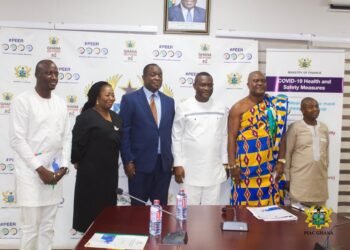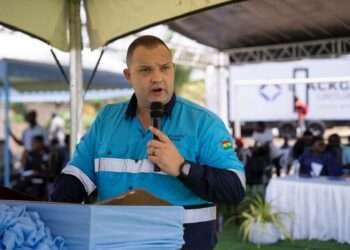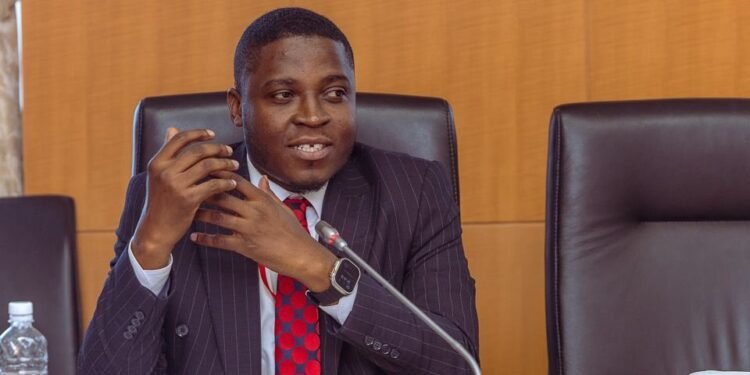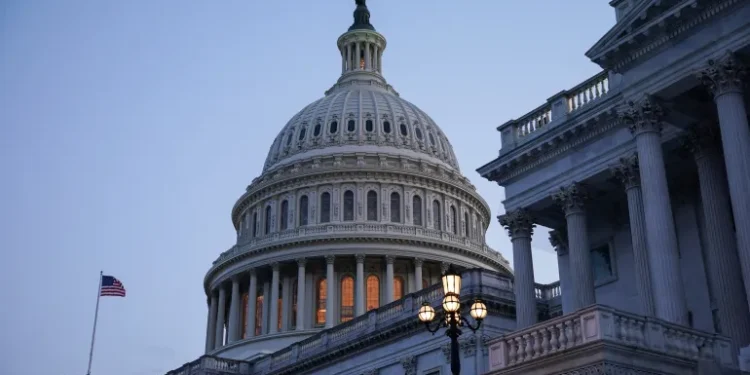At the 2025 United Nations Climate Change Conference (COP30) in Belém, Brazil, Ghana’s Minister of State for Climate Change and Sustainability, Hon. Seidu Issifu, delivered a strong appeal for international cooperation to confront the growing threat of sea-level rise.
Speaking at a high-level session on “Addressing the Existential Threats Posed by Sea-Level Rise,” hosted by the Global Center for Climate Mobility and UNOPS, the Minister painted a stark picture of how rising seas are already transforming Ghana’s coastline and communities.
“Coastal erosion, saltwater intrusion, and the loss of livelihoods are not future scenarios; they are realities we confront today.”
Hon. Seidu Issifu, Minister of State for Climate Change and Sustainability
Ghana’s 250-kilometre coastline, which supports nearly one-third of the national population and 60 percent of industrial activity, is bearing the brunt of the climate crisis.
The Minister warned that if global emissions continue unchecked, the country risks losing vast areas of land and displacing millions of its citizens.

Drawing on findings from the Intergovernmental Panel on Climate Change (IPCC), the Minister noted that global sea levels have risen by roughly 20 centimetres since 1900 and could climb by as much as one metre by 2100. The implications for low-lying coastal countries like Ghana are dire.
The Minister warned, “In Ghana, such a rise could result in the loss of up to 20 percent of our land area and displace more than five million people,” underscoring the scale of the humanitarian and economic risks involved.
The Minister’s remarks came as scientists continue to warn that rising global temperatures are accelerating glacial melt and ocean expansion.
West Africa’s coastal zones, which host major cities, ports, and energy infrastructure, are increasingly vulnerable to flooding and erosion.
For Ghana, these impacts have already been visible in communities such as Keta, Ada, and Axim, where shoreline retreat and saltwater intrusion threaten homes, agriculture, and livelihoods.
Ghana’s National Response to Coastal Vulnerabilities

In addressing the global audience at COP30, the Minister outlined Ghana’s comprehensive approach to managing coastal risks through its Integrated Coastal Zone Management (ICZM) programme.
The initiative, he explained, aims to map vulnerable areas, restore degraded ecosystems such as mangrove forests, and build natural seawalls that use vegetation and sediment structures rather than hard concrete barriers.
“Through the ICZM framework, we are working to protect our coastal ecosystems while empowering communities to adapt.”
Hon. Seidu Issifu, Minister of State for Climate Change and Sustainability
The programme also promotes climate-smart agriculture, including the development of salt-tolerant crops, and supports relocation efforts designed to safeguard livelihoods and cultural heritage.
These interventions are part of Ghana’s broader climate adaptation agenda, which seeks to build resilience across all sectors of the economy.
However, the Minister cautioned that such national efforts cannot succeed without international financial and technical support.
Linking National Goals to Global Climate Finance
The Minister highlighted Ghana’s commitment to aligning its Nationally Determined Contributions (NDCs) with global climate finance instruments such as the Green Climate Fund and the Adaptation Fund.
He emphasized that climate financing must be more accessible and predictable if developing nations are to meet their adaptation targets. “Developed nations must honour their commitments and ensure that resources reach those most affected,” the Minister said.
Referring to the newly established US$738 million loss and damage fund, he described the sum as “a fraction of what is needed” to confront the growing costs of climate impacts.
By strengthening the link between national adaptation planning and international funding mechanisms, Ghana hopes to accelerate projects that both mitigate emissions and protect vulnerable communities from sea-level rise and other environmental shocks.
In one of the key moments of his address, the Minister called for the creation of a “Coastal Resilience Pact” under the auspices of the African Union and the UN Framework Convention on Climate Change (UNFCCC).
Turning Crisis into Opportunity

In his closing remarks, the Minister described sea-level rise not only as a profound threat but also as a catalyst for renewed global unity.
“Sea-level rise is an existential threat, but it is also an opportunity to forge a new era of climate solidarity.
“Ghana is ready to lead and to partner, because the health of our coast is the health of our planet.”
Hon. Seidu Issifu, Minister of State for Climate Change and Sustainability
The speech drew strong reactions from delegates, who praised Ghana’s proactive coastal management strategies and its moral leadership on climate adaptation.
As COP30 continues in Belém, Ghana’s message resonates: addressing sea-level rise requires not only technical solutions but also moral resolve and collective action. For coastal nations, the stakes could not be higher survival itself depends on the choices made today.
READ ALSO: Ato Forson Promises Renewed Investment for Benso Oil Palm Plantation























